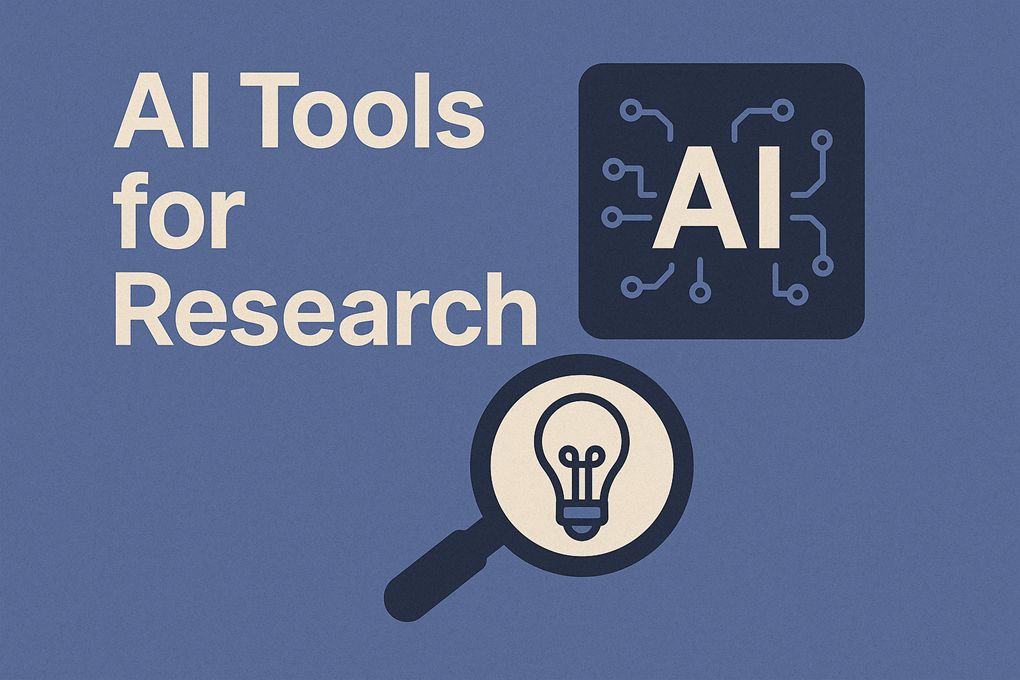Imagine cutting your research time from weeks to hours. Sounds impossible? For millions of modern researchers, AI tools are making this a reality. In today’s information overload era, AI research assistants have become essential for students, scholars, and scientists navigating over 125 million academic papers.
These ai research tools automate tedious tasks like literature reviews, data extraction, and paper discovery – freeing you to focus on breakthroughs.
In this blog, I am gonna tell you about these top 5 paid and free ai tools for researchers, with their features and functioning.
Here we go.
What are the Top AI Tools For Research?
Whether you’re a student writing your first thesis or a professor leading systematic reviews, these Ai powered research tools adapt to your needs.
AI-powered research tools are software applications that use artificial intelligence to automate or enhance academic tasks like finding papers, summarizing content, analyzing data, and discovering connections, helping researchers save time and improve the quality of their work.
Here are the best Ai research tools:
- Semantic Scholar
- Research Rabbit
- Elicit
- Litmaps
- R Discovery
Let’s discuss them in detail.
1. Semantic Scholar
Best For: Quick paper screening & summaries.
Website: semanticscholar.org
Features:
- TLDR summaries (1-sentence paper insights)
- 214M+ paper database with citation context 10
- Citation graph analysis
- Open-access filters
- FREE (no paid tiers)
- 10-second paper assessments – screen relevance before deep diving.
2. Research Rabbit
Best For: Exploratory research & trend spotting
Website: researchrabbit.ai
Key Features:
- Spotify-like recommendations based on saved papers
- Interactive co-authorship and citation visualizations
- Collection sharing with team commenting
- Zotero integration for reference management
- FREE forever 5
- Finds hidden connections through collaborative knowledge graphs.
3. Elicit
Best For: Clinical researchers & evidence synthesis
Website: elicit.com
Key Features:
- Automates data extraction from PDFs (tables, methods, results) 2
- Generates systematic review reports with traceable sources
- Screens papers 80% faster than manual methods 2
- 125M+ paper database with source quoting
- Basic: Free (20 PDFs/month)
- Plus: $12/month (600 PDFs/year)
- Pro: $49/month (2,400 PDFs/year) 4
- End-to-end systematic reviews with transparent source tracing – no more “black box” results.
4. Litmaps
Best For: Understanding research evolution
Website: litmaps.com
Key Features:
- Timeline maps showing paper relationships
- Alerts when new connected papers publish
- “Seed maps” from starting articles
- Author network visualizations
- Free (1 map/100 articles)
- Pro: $10/month (unlimited maps) 6
- See knowledge evolve across decades of research in one interactive timeline.
5. R Discovery
Best For: Students & multidisciplinary researchers
Website: discovery.researcher.life
Key Features:
- 250M+ papers + 8M+ summaries 7
- Audio papers with human-like voices
- 30+ language translations
- Daily personalized paper feeds
- Free version available
- Prime: Price not specified (app-only features)
- Break language barriers with audio papers and translations – research in your native tongue.
Ai Tools For Researchers – Comparison At A Glance
| Tool | Best For | Standout Feature | Cost Efficiency |
|---|---|---|---|
| Elicit | Systematic Reviews | Automated data extraction | ★★★☆ (Pro: $49/mo) |
| Research Rabbit | Discovery | Collaboration visuals | ★★★★★ (FREE) |
| Litmaps | Historical Trends | Timeline mapping | ★★★★☆ ($10/mo) |
| R Discovery | Multilingual Research | Audio papers | ★★★★☆ (Freemium) |
| Semantic Scholar | Quick Screening | TLDR summaries | ★★★★★ (FREE) |
Related Tools:
Check out the best Ai writing tools.
FAQs
1. How to use AI tools for research?
When I use AI tools for research, I start by defining my topic or question clearly. Then, I turn to tools like ChatGPT or Elicit to gather background information, summarize studies, and find credible sources.
AI helps me:
- Generate topic ideas and research questions
- Summarize long papers or reports
- Spot connections between studies
- Organize notes and citations
2. How to use AI tools for research paper writing?
When writing a research paper, I use AI tools to streamline the early stages brainstorming, outlining, and summarizing sources. For example, AI tool can help to draft an abstract or structure an argument based on my notes.
Tools like Jasper, Grammarly, and Quill Bot also help polish my language and make the writing more concise. However, I make sure every idea, argument, and citation reflects my own critical thinking. AI can assist with formatting and clarity, but the analysis must always come from me.
3. Which AI tools are suitable for academic research purposes?
For academic research, I’ve found these tools especially useful:
- Elicit: helps find relevant papers and summarize key findings.
- Semantic Scholar: discovers peer-reviewed papers from trusted journals.
- Research Rabbit: visualizes connections between research topics and authors.
- ChatGPT (with verified sources): assists with summarizing and organizing ideas.
Each tool supports a different part of the research process, from literature review to synthesis.
4. Which AI tools are good for research?
It depends on what kind of research you are doing. For academic or scientific work, Elicit, and Semantic Scholar are good because they focus on evidence-based results.
For general research or content projects, ChatGPT, Perplexity AI, and Notion AI help me brainstorm, summarize, and outline ideas efficiently.
The key is to treat AI tools as research assistants, not as final authorities. They make research faster and more organized, but remember to verify the accuracy of their output before citing anything.
Conclusion:
Ready to accelerate your research? Pick one tool that matches your biggest pain point and try it today. The average researcher saves 3.1 hours per literature review – what could you do with that time?
Start with free ai research tools (Semantic Scholar/Research Rabbit) then scale to paid options like Elicit Pro for intensive projects.



